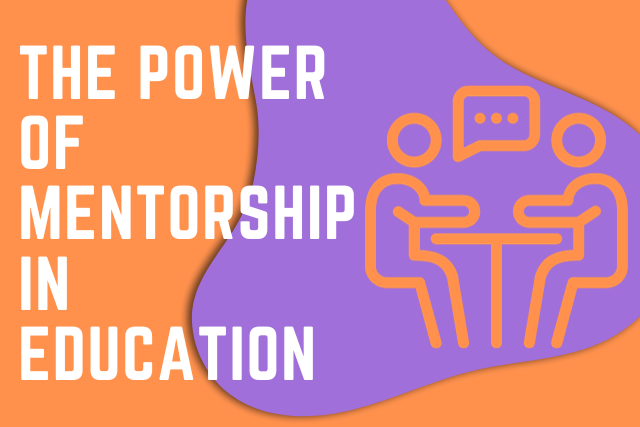Education is not solely about the transfer of knowledge; it’s also about the cultivation of skills, values, and character. One of the most influential factors in shaping the educational journey of a student is mentorship. Mentorship in education involves experienced individuals guiding and supporting learners, helping them navigate academic and personal challenges, and facilitating their growth and development. In this blog post, we will explore the profound impact of mentorship in education and why it is a crucial component of a student’s success.
- Personalized Guidance
A mentor provides personalized guidance to students, tailoring their advice and support to individual needs. This one-on-one attention is particularly valuable for students who may struggle in a traditional classroom setting or those with specific learning needs. A mentor can identify areas where a student needs help and work with them to overcome obstacles.
- Building Confidence
Many students struggle with self-doubt and lack of confidence. A mentor can serve as a source of encouragement, helping students believe in themselves and their abilities. When a student knows that someone believes in them, they are more likely to take risks and pursue ambitious academic goals.
- Career Development
In higher education, mentors play a crucial role in helping students chart their career paths. They can offer insights into various professions, connect students with valuable resources, and even provide internship or job opportunities. Mentorship can be a bridge between academic learning and real-world application.
- Emotional Support
Educational journeys can be emotionally taxing, filled with stress, anxiety, and uncertainty. A mentor provides a safe space for students to discuss their concerns and fears. This emotional support can make a significant difference in a student’s mental health and overall well-being.
- Fostering Critical Thinking
Effective mentors encourage critical thinking and independent problem-solving. They challenge students to think beyond memorization and instead analyze, question, and explore ideas. This approach to learning not only helps in academics but also in life.
- Character Development
Education is not just about acquiring knowledge; it’s also about developing strong character. Mentors can instill values such as integrity, perseverance, and empathy in students. These qualities are essential not only for academic success but also for becoming responsible citizens.
- Long-term Relationships
Mentorship doesn’t end when the educational program does. Many mentor-student relationships endure long after graduation. These ongoing connections can provide valuable advice and support as student’s transition into their careers.
- Inspiration and Role Modeling
Mentors often serve as role models for their students. They demonstrate what it means to be successful, ethical, and compassionate individuals. Through their actions and achievements, mentors inspire students to aim high and pursue their dreams.
Conclusion
Mentorship in education is a powerful force that can shape the lives of students in profound ways. It goes beyond the classroom, touching on personal development, career growth, and character building. Effective mentors have the ability to guide, inspire, and empower students, ultimately contributing to their success and well-being. As we recognize the incredible impact of mentorship, it’s important to encourage and support mentorship programs at all levels of education, ensuring that every student has the opportunity to benefit from this transformative experience.

